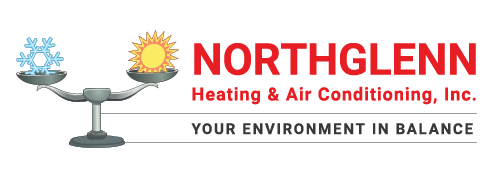Everyone’s always looking to save money on their utility bills, but it turns out there’s a way to lower energy use, even when you’re not even home.
The secret is your thermostat. By using automatic schedules, you can help the thermostat plan for your preferred temperatures. This means establishing various temperature settings for when you’re home, away or even when you’re asleep.
With a few simple adjustments, you’ll be able to enjoy comfortable temperatures while cutting down your energy bills. Check out our guide on how your thermostat can save you money in the summer:
While at Home
Pretty much whenever you’re home, you want a nice range of pleasant temperatures. That’s why it’s best to set your thermostat lower in the summer if you’re indoors to appreciate the cool air.
But the ideal temperature for when you’re in your home during the summer is usually between 78 and 80 degrees Fahrenheit. This way, you can stay cool while keeping your energy bill more manageable.
While Away
If you’re setting the temperature for a vacation or other trip away from the house, the majority of homeowners will set the thermostat higher than normal.
If your home is located somewhere a little cooler, you can set the thermostat to higher temperatures like 88 degrees while no one is home before you adjust it back to the sweet spot of 78-80 degrees after you return. This way, your air conditioning system isn’t working around the clock to cool an empty house.
While Sleeping
For a full night’s rest during summer weather, you want a nice cool temperature. You should try and keep things between 68-72 degrees Fahrenheit. You won’t have to worry about getting too hot or too cold at some point overnight.
Other Ways to Use Less Energy:
- Smart thermostat installation: Using a smart thermostat in the summer helps save money on energy costs as it forms temperature schedules according to your lifestyle and idea of what comfortable is. It’ll take care of making changes while you are home or sleeping, before allowing it to warm up when no one is home. With reliable brands like the Lennox iComfort, you have the ability to remotely access and change the temperature through your smartphone, tablet or laptop. Planning smart thermostat installation in your Northglenn home is an effortless way to set the correct temperature no matter where you are.
- Replace current equipment with a newer HVAC system: A high-efficiency HVAC system saves money right from the start. If a system boasts high energy efficiency, lower utility bills won’t be far behind since it requires less energy to reach your preferred temperatures. Air conditioning installation in Northglenn is only a phone call away, so don’t hesitate to reach out to local pros like Northglenn Heating & Air Conditioning who can set you up for success.
- Keep up with AC maintenance: Investing in or ignoring regular air conditioning maintenance in Northglenn can have a significant impact on your utility bills. With regular cleaning of the coils, checking for damage and clearing air vents of dust and debris, this can help your HVAC system run more efficiently. Higher energy efficiency will also reduce strain on key parts and lowers operational costs, resulting in lower energy usage and subsequently, smaller bills.
- Replace your air filter regularly: Cleaning or replacing the air filter regularly saves money by helping air flow efficiently through your air conditioner. When filters become clogged, your air conditioner will have to work harder, and this greater strain could shorten the system’s life span and result in breakdowns.
- Verify your attic has enough insulation: Insulation is a crucial component for any energy-efficient home, keeping the hot air outside and the cool air inside over the summer. The North American Insulation Manufacturers Association (NAIMA) suggests that homeowners living in southern climates should have at least 13-14 inches of insulation, while colder climates do better with 16-18 inches.
- Inspect your ventilation: Leaky ductwork can raise your energy bills much more than 20 percent, plus it can affect equipment such as your water heater, clothes dryer and other appliances to get into the atmosphere of your home. Watching for signs of leaks and sealing them can address both concerns.
- Seal all other leaky spots in your home: Sealing leaky spots in your home with caulk, foam sealant or weather-stripping keeps temperatures a little cooler on hot summer days. Don’t forget to check for any gaps around windows, doors and even outdoor fixtures. Making time to seal leaks now can help you save a lot in the long term.
